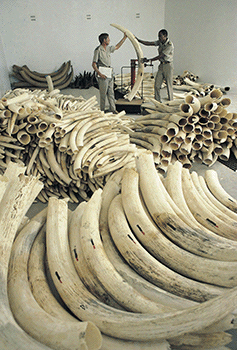China’s Wandering Elephant Herd
Wednesday, June 30th, 2021
Aerial photo taken on June 7, 2021 shows wild Asian elephants napping in Jinning District of Kunming, southwest China’s Yunnan Province.
Credit: © Xinhua/Alamy Images
A wild elephant herd has captured global attention and baffled, well, everyone. Fifteen elephants, including three calves, have been on a mysterious trek across their native China. Traveling for over a year, the migration has taken them more than 300 miles (500 kilometers) from home. Their natural habitat is thought to be the Mengyangzi Nature Reserve in Xishuangbanna, Yunnan. Reserves are areas of land set aside to protect the habitats of elephants and other wild animals. China only has about 300 wild elephants. Most live in the south of the Yunnan province.
The traveling herd gained fame in China despite trampling crops, damaging property, and occasionally poking a trunk through someone’s window. The elephant’s padded feet enable them to walk and run with surprisingly little noise. Elephants normally walk at a speed of 3 to 6 miles (5 to 10 kilometers) an hour. When making a long journey, a family walks at about 10 miles (16 kilometers) an hour.
The elephants might have been looking for a new habitat, though they wouldn’t find one among millions in the city Kunming. Paths were cleared and food was provided as towns moved to protect the elephants.
Safety is a high priority for the endangered Asian elephant. Local government launched drones and mobilized hundreds of people to protect the herd’s migration. People attempted to steer the elephants in the southwest direction, back toward the reserve. However, the herd may have decided to head home all on their own.
Elephants are extremely strong and highly intelligent. There are two kinds of elephants, African elephants and Asian elephants, also known as Indian elephants. Asian elephants live only in southern and southeastern Asia. They are found in forests and jungles of Cambodia, China, India, Indonesia, Malaysia, Myanmar, Sri Lanka, Thailand, and Vietnam.
Today, wildlife experts agree that elephants are in great danger and need human protection to survive. The number of wild elephants has greatly declined because people kill elephants for their ivory tusks. Farming and industry threaten the natural resources needed by elephants to survive. In Asia, human population growth and habitat destruction have severely reduced the number of wild elephants. Scientists estimate that only about 40,000 Asian elephants survive in the wild.
An adult Asian bull stands from 9 to 101/2 feet (2.7 to 3.2 meters) tall at the shoulder and weighs up to 8,000 pounds (3,600 kilograms). Asian cows stand about 8 feet (2.4 meters) tall and weigh about 6,600 pounds (3,000 kilograms).
Most Asian elephants have light gray skin and may have pink or white spots. Most Asian bulls have tusks that grow from 4 to 5 feet (1.2 to 1.5 meters) long. However, some Asian males, called makhnas, have no tusks, and many Asian females have none. Other Asian females have extremely short tusks called tushes.



